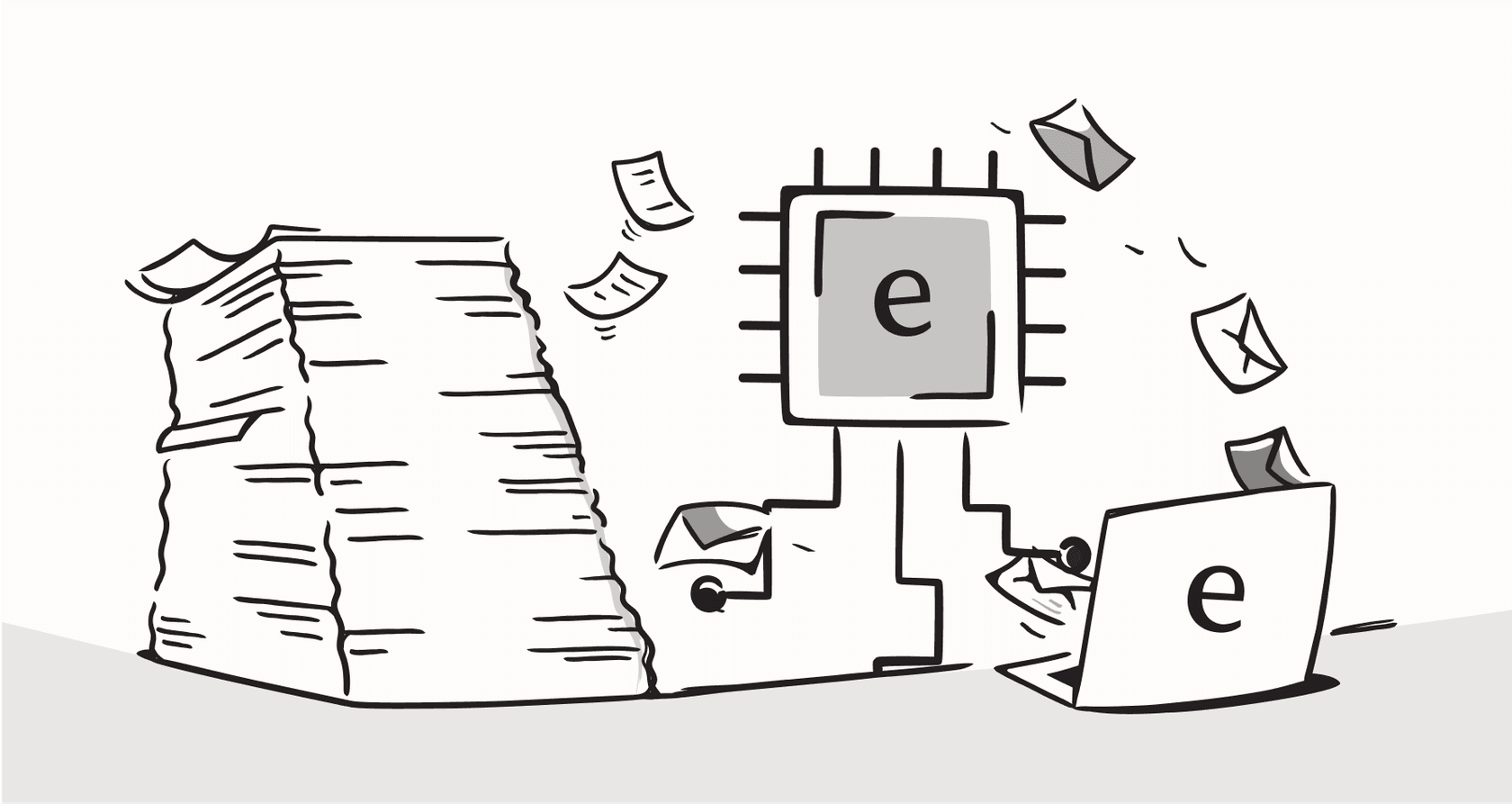
Let's be honest, trying to figure out Scale AI pricing feels like solving a puzzle in the dark. Their pricing is famously a secret, not listed on their site, and tucked away behind a series of sales calls and demos. This makes it a real headache for anyone trying to budget for an AI project or even just compare their options.
This post is here to flip on the lights. We’re going to pull back the curtain on Scale AI's pricing model, breaking down their plans, the hidden costs, and what you actually get for your money. More importantly, we'll show you a straightforward alternative for businesses that need powerful AI without the enterprise-level price tag and complexity.
First, what is Scale AI?
Before we get into the costs, it helps to know what Scale AI actually does. At its heart, Scale AI is a data company. They provide huge amounts of high-quality, human-checked data that other companies use to train massive artificial intelligence models.
Think about the biggest challenges in AI today: powering self-driving cars, building the next version of generative AI like ChatGPT, or supporting complex government projects. These things need a staggering amount of carefully labeled data to learn from, and that’s the problem Scale AI solves. They basically supply the raw materials needed to build foundational AI models from the ground up. This is key to understanding their pricing, because you’re paying for a service, not just a software subscription.
Decoding the Scale AI pricing models
Scale AI really has two main options: a very limited self-serve plan and an all-in enterprise plan. The vast majority of their business, and all the cool features that make them a leader, are locked inside the Enterprise plan, which has no public price list.
Pro Tip: According to transaction data from Vendr, the average Scale AI contract is around $93,000 a year, with some deals soaring past $400,000. This really shows they’re focused on large companies with deep pockets.
The enterprise plan: For big, strategic AI projects
This is Scale AI’s main offering, and it's designed for Fortune 500s, major AI labs like Meta and OpenAI, and U.S. government agencies.
The pricing is completely custom. To even get a number, you have to book a demo and go through a long sales process that can take weeks, if not months. This plan gives you the keys to their entire product suite, including the Scale Data Engine and the Scale GenAI Platform, plus dedicated support and enterprise-level service guarantees.
The biggest issue here is the friction. This model is built for massive, long-term projects, not for teams that need to move fast, test ideas, and know what they're spending. It's the opposite of agile.
The self-serve data engine: For experiments, not production
Scale AI does have a self-serve option, but it's important to know its limits. This tier is specifically for "experimental or research projects," not for running your day-to-day business operations.
It’s a "pay-as-you-go" system based on how much you use. You get a few free credits to start, like the first 1,000 labeling units, but costs can get unpredictable in a hurry. Your final bill is calculated from a long list of "consumption categories," including how much data you upload, how many queries you run, and how many predictions you process. It’s a confusing system that makes it tough to guess your monthly bill, especially if your usage goes up and down. This tier is also missing the advanced features, dedicated support, and power of the enterprise plan.
| Feature | Self-Serve Data Engine | Enterprise Plan |
|---|---|---|
| Pricing Model | Pay-as-you-go (per unit) | Custom Quote (Requires Demo) |
| Best For | Individuals & research projects | Strategic, large-scale AI initiatives |
| Onboarding | Self-serve signup | Multi-stage sales process |
| Support | Community / Documentation | Dedicated operations support |
| GenAI Platform | Not included | Full access |
| Transparency | Limited; based on complex usage units | None; completely opaque |
What actually drives up the cost in Scale AI pricing?
So, why the high price tag? The final cost from Scale AI isn't just about how much data you have. It's driven by the sheer complexity and human effort that goes into the data labeling they do.
Here are the main things that push the price up:
- The kind of data you're working with: There's a huge difference between simple and complex tasks. Basic text classification is pretty cheap. But labeling 3D sensor data for a self-driving car or analyzing detailed medical scans requires a ton of work from specialized experts, which sends the cost skyrocketing.
- How perfect the data needs to be: Getting to nearly 100% accuracy is hard. Scale AI uses multiple layers of review, where one group of people labels the data and another group checks their work for mistakes. They also use a "consensus" approach, where several people do the same task to find the most accurate result. These tough quality checks add a lot of overhead.
- Managing the workforce: A big chunk of the cost goes to finding, training, and managing the thousands of human labelers on their global platform. This human-in-the-loop system is great for quality, but it's also a major reason the service is so expensive.
- How fast you need it: If you need your data labeled yesterday, Scale AI has to put more people on your project, which naturally bumps up the price. Urgent deadlines always cost more.
Is Scale AI pricing the right fit? A clearer choice for support teams
When you lay it all out, it's pretty clear who Scale AI is for: a company with a multi-million dollar budget looking to build a new, foundational AI model from the ground up.
But what if that’s not you? What if you just want to use proven AI to automate customer support, improve your workflows, and help your team get more done?
This is where a purpose-built platform like eesel AI makes a lot more sense. The difference is night and day. Scale AI gives you the raw materials (labeled data) to build an AI model. eesel AI is a ready-to-use platform that lets you deploy a powerful AI agent right into your existing help desk.
The contrast in pricing and ease of use is stark. Instead of opaque, six-figure contracts, eesel AI has transparent, predictable pricing plans you can see right on the website. Plans are based on a set number of AI interactions per month, and you won't find any "per-resolution" fees that penalize you for being successful at automating tickets.
Better yet, while getting started with Scale AI can take months, you can sign up for eesel AI and have your first AI agent running in minutes. Its one-click integrations with help desks like Zendesk and Freshdesk and knowledge sources like Confluence and Google Docs are the perfect antidote to Scale's enterprise-level friction.
Best of all, eesel AI takes the financial risk off the table. Its simulation mode lets you test your AI agent on thousands of your past tickets before you even turn it on. You get a clear forecast of your resolution rate and cost savings, so you know exactly what the ROI will be before you spend a dime.
| Scale AI | eesel AI | |
|---|---|---|
| Best For | Building foundational AI models from raw data | Automating customer support with existing knowledge |
| Pricing Model | Opaque, custom quotes, project-based | Transparent, tiered plans, interaction-based |
| Setup Time | Weeks to months (sales-led) | Minutes (self-serve) |
| Key Advantage | High-volume, complex data annotation | Fast, easy, and controllable support automation |
| Transparency | Very low; requires sales engagement | High; public pricing and risk-free simulation |
This deep dive from Ray Summit 2024 explores the various strategies companies use to price and package AI products, offering valuable context on the complexities of AI pricing models.
Scale AI pricing: Choose the right tool for the job
Here's the main takeaway: Scale AI pricing is high and complicated because it’s a very specialized service for huge data labeling projects, not a plug-and-play software tool. It’s a great solution for a very specific, and very well-funded, type of customer.
For most businesses, especially those trying to improve their customer support, the goal isn't to build a new AI model from scratch. It’s to use today's powerful AI to solve real problems right now. For that, eesel AI is the smart choice. It offers transparent pricing, a simple self-serve setup, and a powerful AI platform designed for one thing: making your support team faster and more efficient.
If you're tired of mysterious pricing and long sales calls and want an AI solution you can try today, start your free eesel AI trial or book a demo and see how quickly you can automate your support.
Frequently asked questions
It's not public because their main Enterprise plan is completely custom-quoted based on your project's specific needs, like data complexity and required accuracy. This model is designed for large-scale, unique projects, not standard software subscriptions.
While there's no official price list, transaction data suggests the average contract is around $93,000 annually. However, projects can easily run into several hundred thousand dollars depending on the complexity and volume of your data labeling needs.
Not really. The self-serve plan is explicitly designed for experimental or research projects and lacks the features, support, and scale needed for production. Its unpredictable, consumption-based billing can also become very expensive for ongoing business operations.
The complexity of the annotation is the biggest driver. Labeling simple text is far cheaper than labeling complex 3D sensor data for a self-driving car, which requires highly specialized human experts and multiple layers of quality review.
It’s unlikely. Scale AI provides the raw, labeled data needed to build a foundational model from scratch, which is why it's so expensive. For automating existing tasks like customer support, a purpose-built platform is a far more direct and cost-effective solution.
Share this post

Article by
Stevia Putri
Stevia Putri is a marketing generalist at eesel AI, where she helps turn powerful AI tools into stories that resonate. She’s driven by curiosity, clarity, and the human side of technology.







